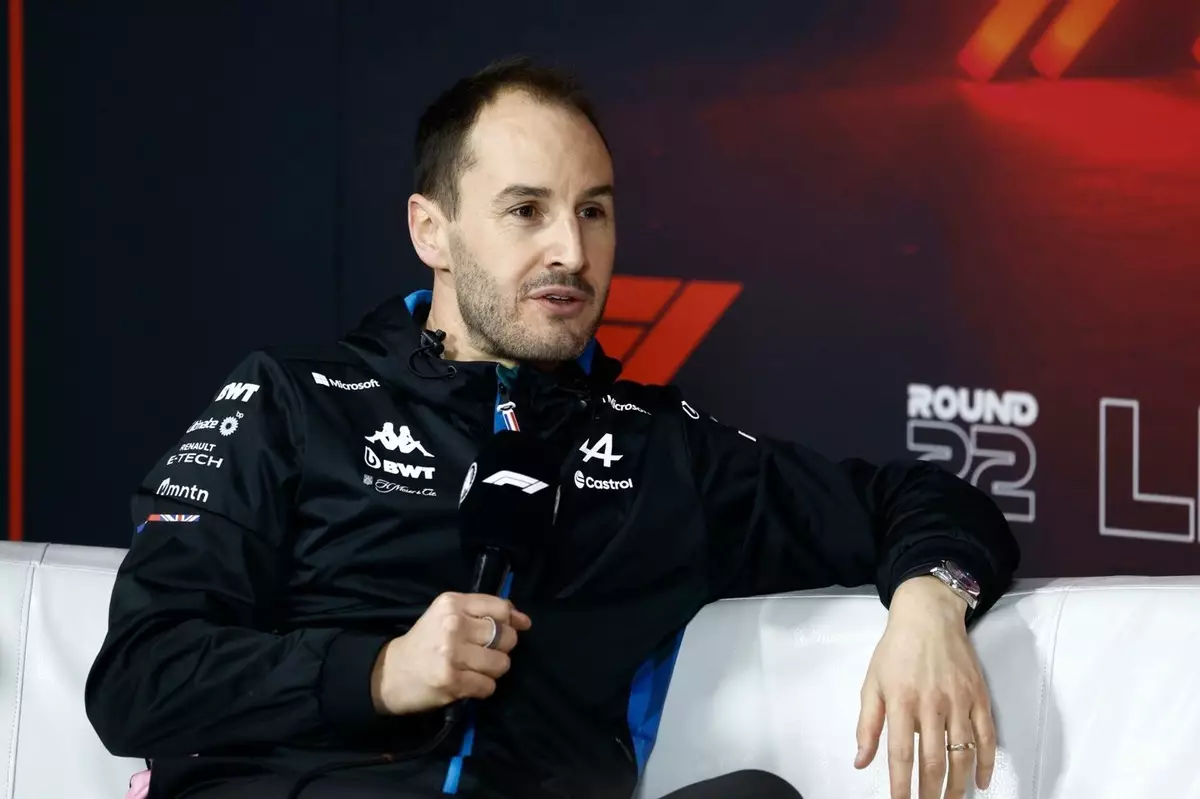In the fast-paced world of Formula 1, adaptability is key to survival and success. The Alpine F1 team, under the stewardship of team principal Oliver Oakes, showcases how a strategic overhaul can reinvigorate a squad that faced significant challenges in the early stages of the 2024 season. A series of decisive moves, from personnel adjustments to a shift in focus towards customer partnerships, emphasize the necessity of agility and efficiency in a sport defined by its relentless pursuit of excellence.
The Rationale Behind Restructuring
Alpine’s decision to streamline operations at its Enstone headquarters is rooted in the need for efficiency amidst a budget cap era. Transitioning from over 1,100 employees to a more nimble 900, the team sought to optimize its human resources and concentrate on core competencies. Oliver Oakes articulated a vital philosophy: in the fiercely competitive arena of Formula 1, maximizing output while minimizing resource waste is imperative. This insightful approach is aligned with broader trends in racing, where teams must do more with less to stay competitive.
Renault’s decision to cease its independent power unit development in favor of a customer agreement with Mercedes further illustrates this strategic focus. By leveraging Mercedes’ established technology, Alpine can redirect its energy towards enhancing the race car itself, re-establishing its identity as a competitive force on the grid. The choice to prioritize a symbiotic relationship with a proven engine supplier over the uncertainty of developing a new engine reflects a pragmatic shift that could yield dividends in performance.
Under Oakes’ guidance, coupled with insights from advisor Flavio Briatore, there’s been a concerted effort to foster a culture centered around performance and continuous improvement. Fostering a unified ethos where every team member aligns with the overarching goal of building a competitive racing car has been paramount. Oakes emphasizes that the focus on a “better car and going racing” encapsulates a philosophy that prioritizes results over mere participation.
The reduction in workforce, often a sensitive topic in any industry, has served to sharpen the team’s focus. Oakes acknowledges the importance of human capital, underscoring that their “main resource today is good people.” This acknowledgment of the value of talent highlights that success in Formula 1 is not solely contingent upon machinery and technology but also on the caliber of individuals working relentlessly behind the scenes.
Investments and Technological Advances
As Alpine pivots to a leaner operational model, the accompanying investments in technology signal a commitment to innovation and competitiveness. Oakes notes the acquisition of new simulators and dynos as critical elements that provide the technical support needed for successful car development. These investments are essential as they increase the data-driven decision-making capabilities of the team, which is crucial in a sport where milliseconds can define success or failure.
Yet, the investment is not merely confined to the technical realm; it also includes fostering a supportive environment that empowers team members. In Formula 1, the ability to attract and retain top talent is as essential as technical prowess, with teams often competing for the brightest minds in engineering and strategy.
While Oakes is cautious about pinning a specific timeline on when Alpine will reclaim its position at the forefront of the midfield battle, he possesses a grounded optimism. The rich history of Enstone, paired with crucial investments and a revitalized team structure, has established a foundation for future success. Alpine’s journey reflects a broader narrative in Formula 1 where agility, resourcefulness, and strategic foresight will play vital roles in navigating the intricacies of this elite motorsport.
As the season progresses, the lessons learned from this restructuring will undoubtedly shape Alpine’s trajectory. The commitment to continuous improvement and a focus on essential priorities reinforces that in Formula 1, every decision counts—each a step towards reclaiming a competitive edge.
Alpine’s narrative in the 2024 season serves as a case study in the efficacy of strategic realignment within a high-stakes arena. The transition towards efficiency, coupled with decisive leadership and technological investment, sets the stage for a promising future. By focusing on their core competencies and embracing a culture of performance enhancement, Alpine F1 aims not just to participate but to excel in the ever-dynamic landscape of Formula 1 racing. The road ahead may be fraught with challenges, but with a clear vision and dedicated resources, Alpine is poised to reclaim its spot as a noteworthy competitor in the racing spectacle.

